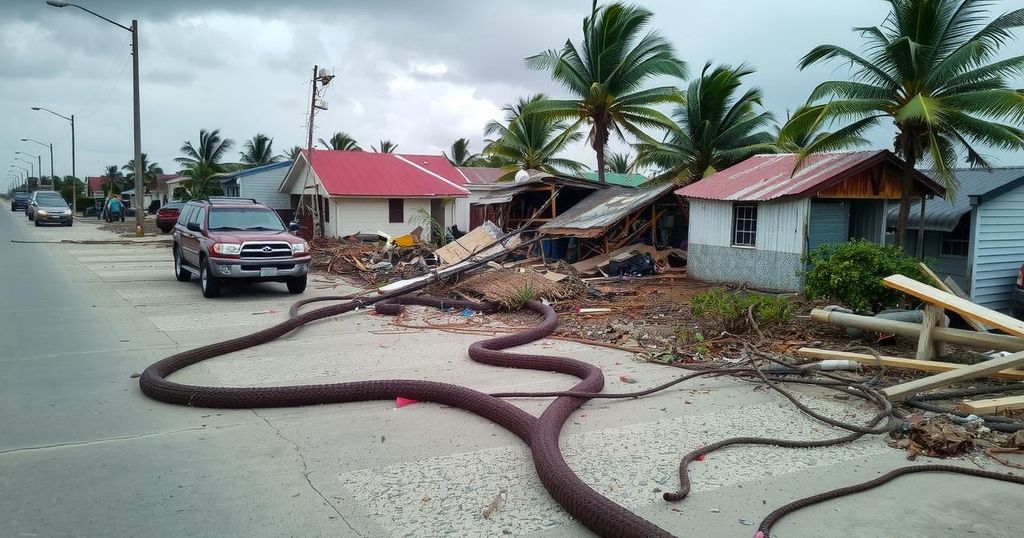Cuba Offers Condolences Following Cyclone Chido’s Devastation in Mozambique

Cyclone Chido caused disastrous impacts in Mozambique and Malawi, resulting in 60 deaths and approximately 230,000 injuries. The cyclone, after hitting Mayotte and traveling through Madagascar, primarily affected Mozambique, particularly the provinces of Cabo Delgado, Nyassa, and Nampula. Malawi also faced serious consequences with 13 deaths and over 45,000 people displaced.
Recently, Cyclone Chido wreaked havoc across Mozambique and Malawi, resulting in a tragic loss of life and widespread destruction. Cuban Foreign Minister expressed his heartfelt condolences to both the Mozambican government and its citizens, particularly extending sympathy to the families of the victims affected by this natural disaster. According to the United Nations Office for Humanitarian Affairs, the cyclone has led to 60 fatalities and approximately 230,000 individuals suffering injuries.
Prior to impacting Mozambique and Malawi, Cyclone Chido devastated Mayotte, a French overseas territory, where it claimed numerous lives and significantly damaged infrastructure, including homes, educational institutions, healthcare facilities, and agricultural lands. After departing Mayotte, the cyclone passed through Madagascar and intensified its destruction in Mozambique and Malawi. Most of the fatalities, totaling 45, were reported in Mozambique’s northern provinces of Cabo Delgado, Nyassa, and Nampula, where the cyclone injured over 184,000 individuals and left a considerable humanitarian crisis in its wake.
Malawi experienced notable but less severe consequences, with 13 recorded deaths, 29 injuries, and more than 45,000 people rendered homeless due to the natural disaster. The situation remains dire, with ongoing assessments and relief efforts needed to support the affected populations as they recover from this devastating event.
The cyclone’s tormental passage through southern Africa underscores the vulnerability of these regions to climate-related phenomena, prompting discussions regarding disaster preparedness and humanitarian response strategies.
Cyclone Chido’s impact serves as a reminder of the increasing frequency and intensity of climate-induced natural disasters, particularly in vulnerable regions like southern Africa. Cyclones can lead to catastrophic effects, including loss of life, injuries, displacement, and infrastructure damage. The response to such disasters often necessitates international cooperation and assistance to mitigate the aftermath and support recovery efforts.
In conclusion, Cyclone Chido has inflicted severe damage in Mozambique and Malawi, resulting in significant loss of life and widespread injuries. The international community, as evidenced by Cuba’s condolences, plays a crucial role in responding to humanitarian crises, emphasizing the need for sustained relief efforts and better disaster management practices in the region. As the affected areas begin to recover, the importance of addressing the challenges posed by climate change becomes increasingly evident.
Original Source: www.plenglish.com





